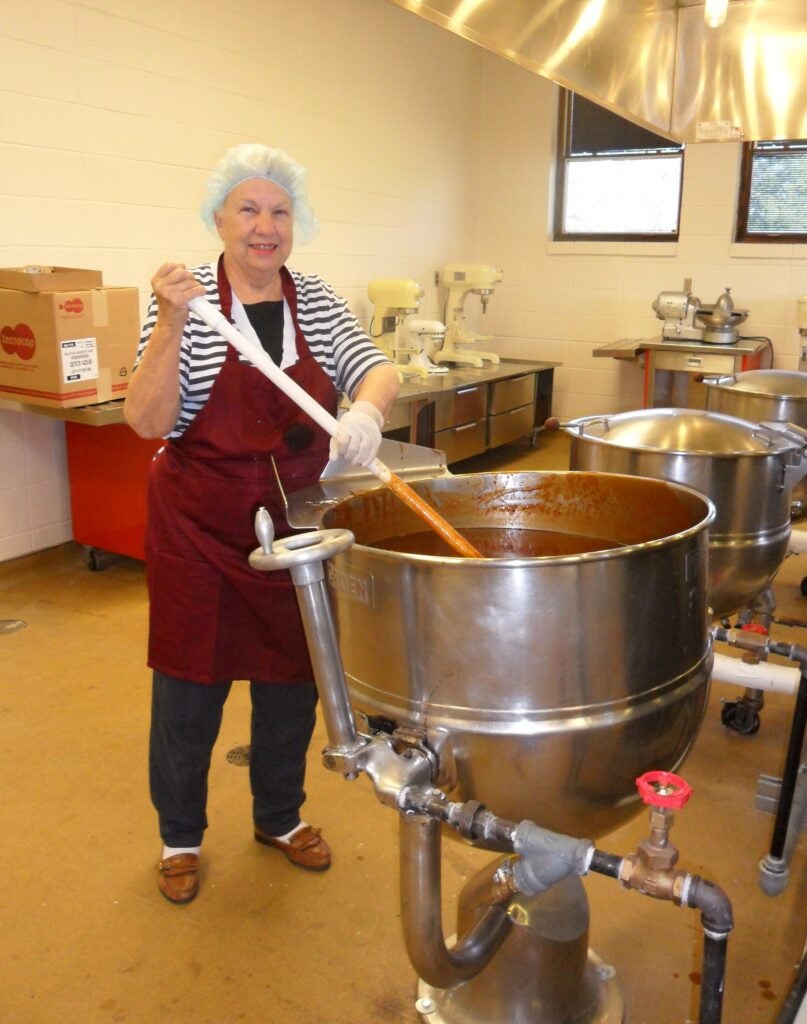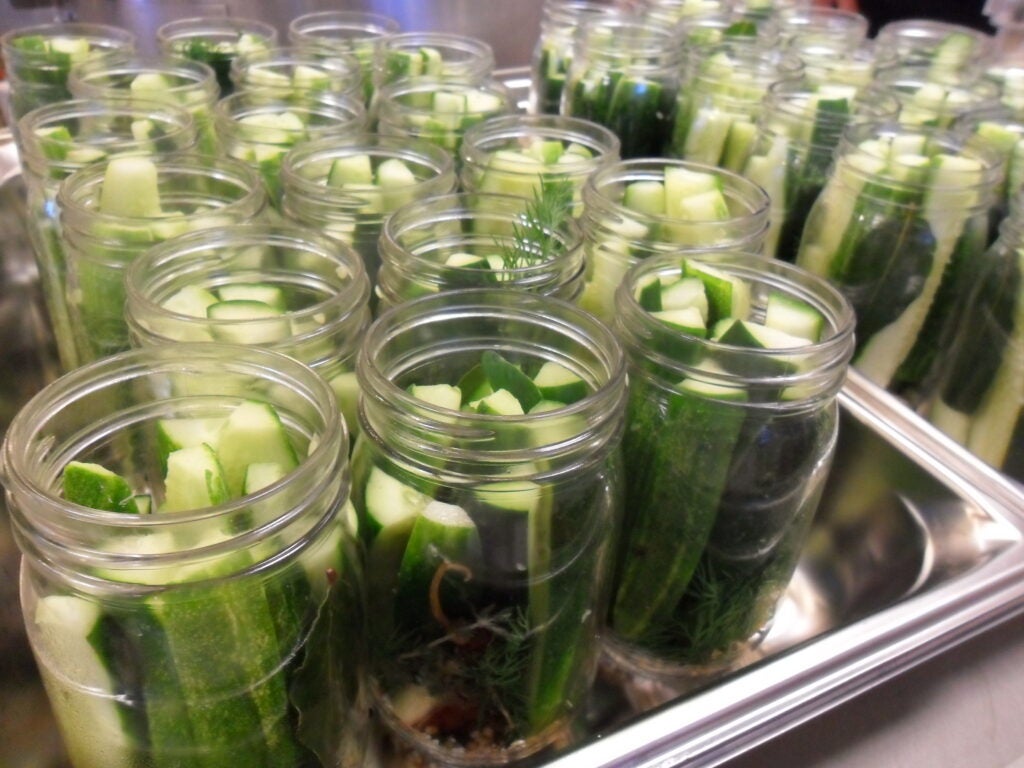Story by Elisabeth Altamirano-Smith
Photos Contributed by Alabama Cooperative Extension Office
Every good Southern cook dreams of having the perfect recipe that people swoon over. While many in the United States envision themselves in the midst of Hollywood and stardom, Alabamians aspire to have their own cookbooks or network cooking show. The South is well known around the world for the art of making barbeque sauce, gravies, desserts and an endless spread of culinary recipes. At the heart of each chef’s ambition is the thrill of having the perfect recipe.
Chilton County hosts a unique opportunity for those chefs at the Chilton Food Innovation Center. Most other Alabama counties do not have a food-processing facility, which allows for fruit and vegetable producers or individuals to can their products for grocery retailers. The Chilton Food Innovation Center is a nonprofit and is a FDA and Alabama Department of Public Health approved facility, which is essential for selling acidified manufactured food. Chilton’s Food Innovation Center has helped small food businesses produce jams, jellies, brine, salsa, barbeque sauce and more over the last decade.
Gay West, Chilton County Extension coordinator, and Jim Pitts, former director of Chilton Research and Extension Center, toured a food innovation center and initiated the idea that Chilton County farmers and individuals would benefit from having one. Local farmers were contacted and agreed that a food-processing facility would help them develop products to sell and help use their produce in new ways.
Every harvest has a portion of fruit that is not as visually appealing and is not attractive enough to sell. The Food Innovation Center allows farmers to transform that produce into a new product. Also, during over-abundant harvest years, the facility allows farmers to use the excess fruit as an ingredient when making a new recipe instead of the produce going to waste.

Even though individuals may not be familiar with how to operate commercial kitchen equipment, the center works in cooperation with the Alabama Cooperative Extension System and the Alabama Agricultural Experiment Station and provides guidance on machine use.
“Those interested need to bring their own ingredients, packaging and labor with plans for their own distribution, but we will stay with them until they are comfortable operating the machinery,” said Alabama Regional Extension Agent Christy Mendoza.
Some of the machines and equipment unique to the kitchen include the following: a conveyer built with a bottle sensor that recognizes when a jar is present and how much product to fill each jar with, 40-gallon steam jacketed kettles, fruit-washing equipment, peach pitter, lye peeler, semi-automatic jar labelers, ovens and freeze dryer.
Many of the clients the innovation center receives are from urban areas that want to produce a product, but their city lacks a processing center. The center not only benefits farmers looking to innovate their produce, but it is also a financial opportunity for a co-packer to work between the farmers and the retailer.
“This is a great opportunity for someone with an entrepreneurial spirit to be the middle person between the farmer and retailer,” Mendoza said. “Many times farmers only have time to operate their farm. They don’t have time to also come to the Innovation Center, create a recipe, package it and sell it to a grocery store. Ideally, the self-employed, co-packer would be waiting at the center for the farmer to deliver the produce and then process it for them. The co-packer could sell it back to the farmer or be in contact with the grocery retailer.”
Mendoza, who has helped organize and train at the innovation center for 10 years, has also indirectly learned the detailed system of grocery retail over the years.
“When you have a product to sell, grocery stores will sell their shelf space to you,” said Mendoza.
“However, it is your responsibility to always keep that product stocked. That can mean selling the grocer a pallet at a time of the product to keep in stock.”
Many Alabama grocery stores frequently stock their endcaps with red and blue signs marked “Buy Alabama’s Best.” This was an initiative that began in 2006 to identify and bring awareness to Alabama food products and increase their sales. Finished products from the Innovation Center are frequently stocked under “Buy Alabama’s Best” for locals that want to “buy local” and support the community.
“Since we first opened, I have toured other similar processing centers around the country to understand how they operate,” said Mendoza. “One center in Asheville, North Carolina is very successful mainly because the entire city has centered around the processing center. When you go into gift shops downtown, they have locally-made products for sale. The restaurants also sell dishes made with the products. It is a large part of their tourism industry and they are very successful because of it.”
The Chilton Food Innovation Center usually rents for $40 per hour unless the packer has a long-term agreement. Packers must also have insurance and worker’s compensation. Mendoza said that the Extension Center not only helps train for use of the equipment but can also help interested individuals contact the necessary parties to be insured.
Chilton Food Innovation Center is located at 13 First Avenue in Clanton and is available by appointment. Contact Mendoza for more information at 205-217-6495.

